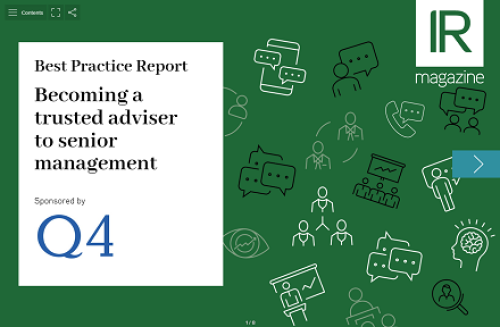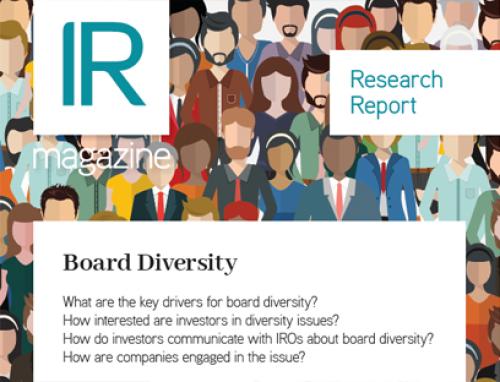‘What do you want to be when you grow up?’ is what most grandparents ask when you are little. I'm sure that no-one answers ‘investor relations officer’.
I wanted to be a pilot, a professional cyclist, an engineer, a dentist and a shipping man, but ended up studying business and finance. A career in IR only entered my mind after sitting at the back of the Novo Nordisk company shuttle in the late 1990s and asking my fellow bus rider: ‘So, what is your job in the company?’. Poul Lykkesfeldt answered: ‘I am head of IR’.
A few years later, I got the opportunity to enter IR after an IPO. Four companies and two great mentors (Michael Steen-Knudsen and Karl Mahler) later, IR has become my career of choice with a clear conviction that this is a proper career, not a rotational job and not a stepping stone climbing the corporate ladder.
Demands of the job
More than anything, IR is a relationship business. Keeping up with sell-side analysts, buy-side investors, your company’s C-suite, internal subject-matter experts, financial media, or key service providers, is all about making and keeping good relations. If it takes 50 repetitions to instill a good habit (as Sean Meshorer writes in The Bliss Experiment), how many meetings does it take to earn the confidence of a potential shareholder when trust arrives on foot but leaves on horseback? (Thanks to Warren and Charlie for the Berkshire annual general meeting quote.)
There are ever-increasing demands in IR. It takes more or less a year to learn the ins and outs of a business to the extent of being able to articulate it to investors as well as the CEO – which is what a decent IRO is expected to do. Then add a need to be proficient in all matters finance - and in some cases science and technology, depending on the type of business - as well as a host of new acronyms like SDG, GRI, SASB and TCFD. If you happen to know them all, congratulations, you have graduated from kindergarten in sustainability and ESG.
Safe hands at the wheel
Until recently, the world had gotten smaller, but as argued by others, the world has become more fragmented and financial markets are now less integrated than in the past. Geopolitics are more uncertain than has been seen in several decades, with increased volatility as a result. Navigating this new reality requires an experienced sailor, and experience is something one cannot accelerate.
If safe hands are needed at the IR steering wheel, one cannot take the job with the intention of just staying long enough to secure the next job in the company. In order to be a trusted partner to the market, pleasing internal stakeholders to lobby for an internal promotion may not serve the market’s need for a value-enabling spokesperson in the company, one who shares good and bad news in the quest to improve company performance.
Harsh feedback in an investor perception study can be difficult to swallow, but may be needed to improve. And worrying about those comments being a career stopper is of no good for anyone.
A personal perspective
If you are not convinced already, here’s my personal view: Experience in IR is also valuable in monetary terms. Changing companies as part of an IR career is likely to create more personal value as opportunities to advance investor communications at a new company emerge.
Additionally, experienced IR people are more likely to achieve strong results in IR rankings, supporting your personal drive for career excellence, similar to academic excellence through publications and awards. There is nothing more fulfilling than being considered a true master of the art.
But, with a black belt in your field, and as your experience and career build, never forego an opportunity to give back to the IR community, including your national IR society or through publications like this one.










